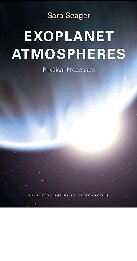

Most ebook files are in PDF format, so you can easily read them using various software such as Foxit Reader or directly on the Google Chrome browser.
Some ebook files are released by publishers in other formats such as .awz, .mobi, .epub, .fb2, etc. You may need to install specific software to read these formats on mobile/PC, such as Calibre.
Please read the tutorial at this link: https://ebookbell.com/faq
We offer FREE conversion to the popular formats you request; however, this may take some time. Therefore, right after payment, please email us, and we will try to provide the service as quickly as possible.
For some exceptional file formats or broken links (if any), please refrain from opening any disputes. Instead, email us first, and we will try to assist within a maximum of 6 hours.
EbookBell Team

4.1
10 reviewsOver the past twenty years, astronomers have identified hundreds of extrasolar planets--planets orbiting stars other than the sun. Recent research in this burgeoning field has made it possible to observe and measure the atmospheres of these exoplanets. This is the first textbook to describe the basic physical processes--including radiative transfer, molecular absorption, and chemical processes--common to all planetary atmospheres, as well as the transit, eclipse, and thermal phase variation observations that are unique to exoplanets.
In each chapter, Sara Seager offers a conceptual introduction, examples that combine the relevant physics equations with real data, and exercises. Topics range from foundational knowledge, such as the origin of atmospheric composition and planetary spectra, to more advanced concepts, such as solutions to the radiative transfer equation, polarization, and molecular and condensate opacities. Since planets vary widely in their atmospheric properties, Seager emphasizes the major physical processes that govern all planetary atmospheres.
Moving from first principles to cutting-edge research, Exoplanet Atmospheres is an ideal resource for students and researchers in astronomy and earth sciences, one that will help prepare them for the next generation of planetary science.